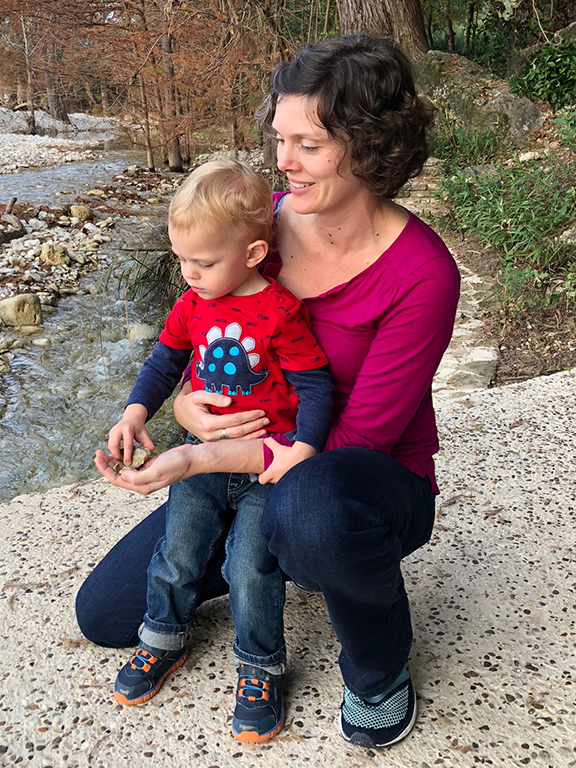“The artist, perhaps more than most people, inhabits failure, degrees of failure and accommodation and compromise: but the terms of his failure are generally secret” observes Joyce Carol Oates in her essay, “Notes on Failure” (231).
Substitute “researcher” for “artist” and Oates’ description still rings true. Yet while the failures and secrets of the research process are par for the course, we often overlook this fact and think that our own particular failures are unique and even shamefully so.
For this reason, for all the summer researchers taking on bigger projects than they have experienced in their classes so far, for all the incoming first-years who will soon receive more rigorous research assignments than they have previously encountered, I hope this brief catalog of common research “failures” might, if nothing else, do away with some of the unnecessary secrecy.

1. Procrastination
Having trouble getting started can feel like failure. If this is you, you may find this NYTimes article helpful. Journalist Charlotte Lieberman interviews several psychology researchers who describe procrastination not as a task or productivity problem, but an emotional one.
If you are struggling to get started, it might be worth taking a minute to ask yourself what exactly you’re afraid to face. Are you unsure of what you’re supposed to do and scared to ask? Worried you’re not smart enough to do the research? Bored or uninterested and therefore avoiding the fact that you don’t like whatever it is you now have to spend the whole summer working on?
Facing these feelings or even talking to your professor about them may help you break through your slump.
2. Finding sources
In doing library or archival research, sometimes it can feel like a failure if the sources you hoped to find don’t immediately appear. In this case, there is one very easy step you can take: meet with a librarian to see if your assessment of the situation is true!
Of course, it’s also possible that what you wanted to find does not exist. In this case, a librarian or professor can still help, by confirming the gap or absence you have noted, and also in helping you figure out what to do with that information (hint: the lack of information/attention on a topic is itself a finding, and as such a starting point, not an ending).
3. Staying focused
If you are anything like me or a number of other Trinity students, this is a common challenge. I often cast my research net wider and wider until it becomes impossible to pull in and sort through. For me, one way to mediate this tendency is to involve others in my process.
Try talking through your ideas and questions with someone else—a friend, professor, or librarian. See if the connections and project scope you see in your mind actually make sense when you say them out loud. Just the act of talking through your ideas may help you make sense of them yourself! Alternatively, talking to someone else can also help you determine whether different components of the project could stand separate projects in their own right.
Writing can be useful at this stage, too. Sometimes the urge to keep researching is really about something else—like avoiding writing and committing your thoughts to paper.
4. Having something to say
This, I think, can be an especially secretive secret. Who wants to admit they don’t have anything compelling to say about their research subject?
However, especially in assigned research or research under a time constraint, you may not always have an immediate or clear response to your research. Or perhaps your findings are not as striking as you hoped, or your hypothesis is not confirmed.
Remember, even the lack of a dramatic finding is still a finding; your research is not, in the end, only about you. It’s also about the community and conversation around your subject. What may seem like a small contribution to you is still part of shaping that community and future research.
5. Organizing and documenting
The failure to organize your research—the process, sources, methods, etc.—can sneak up on you. At least it does for me!
It might be small things, like not writing down the exact way you came up with a particular result, or getting a little sloppy with your citations. And yet, these little details matter. They are what gives your work polish and credibility.
You don’t have to be a “Type A” personality in order to become more organized. Rather, think about organization in research as an ongoing practice. By paying attention to where you’ve missed the mark this time, you can pinpoint small ways to improve the next time.
6. Sharing your work
Usually in the form of writing or presentation, this stage can be laden with anxiety. It also raises the possibility of public failure: what if you submit your work and it’s rejected? What if you bomb your presentation, or you don’t get the grade you hoped for on your paper?
It is difficult not to interpret rejection or an undesirable grade as failure. After all, if success is about meeting a specific expectation, and you do not meet it—that is one definition of failure. And yet, the story you tell yourself about that failure may do more damage than the failure itself.
My own story
 As an early-career professor on the tenure track, the rejections of my first and second articles from top journals was upsetting and scary. Worse, though, was the way in which I then turned that rejection into ongoing self-doubt and self-criticism. I worried that I was not capable of succeeding in the scholarly requirements of my position. As someone to whom many things come fairly easily, learning through failure felt not only unfamiliar but very uncomfortable.
As an early-career professor on the tenure track, the rejections of my first and second articles from top journals was upsetting and scary. Worse, though, was the way in which I then turned that rejection into ongoing self-doubt and self-criticism. I worried that I was not capable of succeeding in the scholarly requirements of my position. As someone to whom many things come fairly easily, learning through failure felt not only unfamiliar but very uncomfortable.
Especially when the stakes are high, it’s easy to interpret failure as an ending. As I learned, though, it isn’t. While some failures may indeed mark the end of things going “the way they’re supposed to” or “according to plan,” they are never the final word. In my experience, and in the experiences of many students I’ve worked with on research projects, moments of doubt, fear, and failure often give way to later feelings of accomplishment, pride, and growth. In fact, this pattern is so common that information science researchers have documented it.
Engaging in research will no doubt bring you face to face with some form of failure. But you don’t have to live in that experience alone, in secret. Failure is a normal part of research, learning, and growing as a person.
At Trinity, there are always people ready to help you figure out how to get to the next part of the story. Failure is not an ending.
Sources
Kuhlthau, Carol Collier. “Information Search Process.” Rutgers.edu. 5 June 2019,
http://wp.comminfo.rutgers.edu/ckuhlthau/information-search-process/
Lieberman, Charlotte. “Why You Procrastinate (It Has Nothing to Do With Self-Control).” New York
Times, 25 March 2019, https://www.nytimes.com/2019/03/25/smarter-living/why-you-
procrastinate-it-has-nothing-to-do-with-self-control.html
Oates, Joyce Carol. “Notes on Failure.” The Hudson Review, vol. 35, no. 2, 1982, pp. 231–245. JSTOR,
www.jstor.org/stable/3850783.

Recent Comments